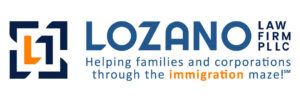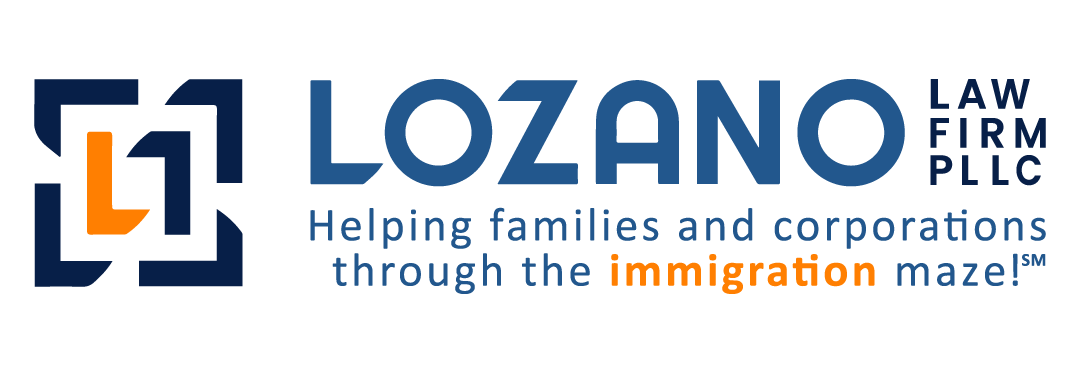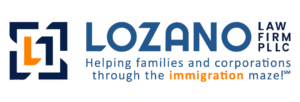Growing your career in the U.S. can feel like navigating an intricate maze for skilled professionals. However, an H-1B Visa lawyer can guide you, clearing the path and simplifying the journey. They help you understand exemptions and your options. Further, their support boosts your chances of getting your application approved.
This article explores the nature of an H-1B Visa, application process, and eligibility. More importantly, the blog tackles cap exemptions in the U.S., highlighting who is qualified and how it can help. It highlights the role of an immigration attorney in navigating this complicated process.

H-1B Visa Lawyer Guides Those In Specialty Occupations
The Visa allows U.S. employers to hire non-immigrant workers in specialty occupations. It requires specialized knowledge and a degree or equivalent experience. Further, it helps businesses find skilled professionals for roles that require talent not easily found in the local job market.
Candidates must meet specific educational and professional requirements to qualify for the Visa. Employers and applicants must navigate a detailed and intricate application process. It involves submitting extensive documentation, including proof of qualifications and evidence that the job requires specialized skills.
Due to high demand, applicants often enter a lottery system to secure a Visa slot, as the number of Visas available each year is limited. However, certain employers, like those at higher education institutions or non-profit research organizations, may be exempt from the annual cap.
An immigration lawyer for the Visa educates clients about these caps and exemptions. They help individuals make informed decisions by providing insights into the requirements and strategies for navigating the system effectively. Further, they help streamline the process and increase the chances of a successful outcome.
The H-1B Visa helps U.S. employers hire professionals from abroad and access a broader talent pool. However, immigration law is complicated and constantly changing. The application process is lengthy and intricate. In-depth knowledge of the Visa’s nature significantly affects the outcome of the application.
The H-1B Visa Opens Doors To U.S. Specialty Careers
The H-1B Visa allows U.S. employers to hire foreign workers for specialty occupations requiring specialized knowledge. It is valuable for addressing skill shortages and bringing professionals into the U.S. Technology, engineering, and healthcare workforce benefits from this.
H-1B Visa & Green Card Pathways
One key benefit of the Visa is that it can lead to permanent residency in the U.S. It permits dual intent, allowing you to pursue a Green Card while working. This pathway can provide a stable route if you wish to transition from a temporary work Visa to a permanent status.
To transition, your employer must sponsor you by obtaining labor certification and filing an immigrant petition (Form I-140). Once a Visa number is available, they must apply for adjustment of status (Form I-485). Keep in mind that employment-based Green Cards are subject to priority dates and Visa bulletin categories.
Application Process
The applicant must have a job offer from a U.S. employer for a role that meets the specialty occupation criteria. It must require a bachelor’s degree or higher in a specific field related to the position. Further, the application is detailed and requires thorough documentation to verify the job’s requirements and the applicant’s qualifications.
- Job Offer: Obtain a job offer from a U.S. employer for a specialty occupation.
- Petition Filing: The employer files a Labor Condition Application (LCA) with the Department of Labor.
- Form I-129: The employer submits Form I-129 (Petition for a Nonimmigrant Worker) to U.S. Citizenship and Immigration Services (USCIS) along with supporting documents.
- Processing: USCIS processes the petition, which may involve a lottery if the cap is reached.
- Visa Issuance: Once approved, the foreign worker can apply for an H-1B Visa at a U.S. embassy or consulate.
The application process is intricate and involves careful documentation and adherence to immigration laws. High competition and the annual cap on Visas can cause delays, often resulting in a lottery system for allocation. Some organizations, such as educational institutions and non-profit research entities, are exempt from this cap.
Various Applications Qualify From Cap Exemptions
Certain applications are exempt from the H-1B Visa cap. It helps alleviate the pressure on the annual limit and provides opportunities for specific roles and organizations. These exemptions apply to various categories, each serving distinct purposes and addressing particular needs within the U.S. job market.
Government-To-Government Agreements
These agreements are cap-exempt to facilitate international collaboration and research funded by the U.S. government. It often involves projects that benefit both countries and require skilled professionals whose work supports bilateral initiatives and advancements.
The exemption ensures that such high-impact projects continue without the constraints of the annual Visa cap. It enables smooth progress on research and cooperative ventures with broad international significance.
Institutions Of Higher Education
Universities and higher education institutions are exempt from the H-1B cap to support their educational and research missions. The exemption ensures that these institutions can attract and retain top academic talent without being constrained. It enhances the quality of education and research.
Non-Profit Research Organizations
Non-profit research organizations affiliated with higher education institutions are cap-exempt. They contribute to critical research and advancements in various fields. Their work often aligns with public and academic interests. It is essential to support their efforts without the limitations of the cap.
Specialty Occupation Exemption
Certain specialty occupations are exempt from the cap due to their essential nature or unique skills required. These exemptions recognize roles that affect national interests, such as positions involving critical technological innovations or national security.
The cap exemption ensures that key sectors can operate effectively. They continue to drive advancements essential to national security and economic growth without being hindered by Visa limitations. It helps maintain the competitiveness and stability of vital industries.
Fashion Model Exemption
Fashion models of distinguished merit and ability are cap-exempt to maintain the U.S. fashion industry’s global prominence. This exemption allows for the entry of internationally recognized models who bring significant influence and prestige to the industry.
It is essential for maintaining high standards and a competitive edge. By allowing top models to work in the U.S., the fashion industry benefits from their global appeal. Aside from its international reputation, it helps sustain its economic impact.
These cap exemptions provide substantial benefits for both employers and foreign applicants. It reduces the constraints imposed by the annual Visa cap and improves job stability. Overall, these exemptions support key sectors and promote innovation across various industries.
An H-1B Visa Attorney Explains The Benefits
Understanding the benefits of H-1B Visa cap exemptions can significantly help employers and foreign workers. These exemptions provide valuable opportunities and flexibility in the U.S. job market. It caters to specific needs and addresses various challenges associated with the Visa process.
For Employers
Cap exemptions allow employers to access a broader talent pool, free from the constraints of the annual Visa cap. This flexibility helps businesses fill essential roles with highly skilled professionals who may not be available domestically.
By eliminating some restrictions, companies can target specific skill sets and address critical gaps more effectively. Hiring specialized talent from diverse backgrounds promotes innovation and provides new perspectives. It boosts the company’s overall creativity and capabilities.
Additionally, cap exemptions support strategic workforce planning. Employers can hire and retain top talent for key positions without the uncertainty of the Visa lottery system. This stability enables companies to maintain operational efficiency and respond quickly to changing market needs.
For Foreign Workers
Cap exemptions significantly increase job opportunities in the U.S. by removing annual Visa limits. This reduction in competition provides a more predictable pathway to employment. It helps applicants streamline their Visa application process and improve their chances of approval.
The stability from cap exemptions is vital for career growth and job security. Foreign professionals can seek long-term positions without the uncertainty of Visa availability. They also gain access to a broader range of job opportunities in their specific fields.
Foreign workers can find roles that better align with their skills and qualifications without cap constraints. This alignment leads to enhanced job prospects and a more stable career trajectory in the U.S. job market. As a result, they can achieve greater career satisfaction.
An experienced H-1B law firm helps employers and foreign workers navigate applications and cap exemptions. They guide leveraging cap exemptions, ensuring compliance with legal requirements, and increasing the likelihood of a successful application.
Lozano Law Firm Supports Employers & Foreign Workers
Lozano Law Firm supports employers and foreign workers managing the H-1B Visa process. Our firm’s in-depth knowledge of Visa regulations and cap exemptions helps employers manage hiring efficiently without Visa restrictions.
For employers, we can streamline the application process by handling the complexities of Visa petitions and cap exemptions. We work directly with businesses to ensure all paperwork is completed accurately and submitted on time. Further, we advise on the practices for maintaining compliance and avoiding common issues.
Foreign workers benefit from our firm’s thorough understanding of Visa requirements and application procedures. Our team offers personalized assistance to help applicants understand their eligibility, prepare necessary documents, and navigate potential challenges.
Summary
The H-1B Visa allows U.S. employers to hire foreign workers in specialty occupations and is subject to an annual cap, though some organizations and positions are exempt. These cap exemptions offer advantages for both employers and foreign workers. The application process includes various exceptions.
An experienced attorney for H-1B Visa can assist in navigating this complex process. Lozano Law Firm supports employers and foreign workers by providing tailored guidance to navigate the H-1B Visa system. We provide invaluable advice to achieve successful outcomes.

 Thank you for contacting us. Please complete this form and one of our team members will be in touch with you soon.
Thank you for contacting us. Please complete this form and one of our team members will be in touch with you soon.


